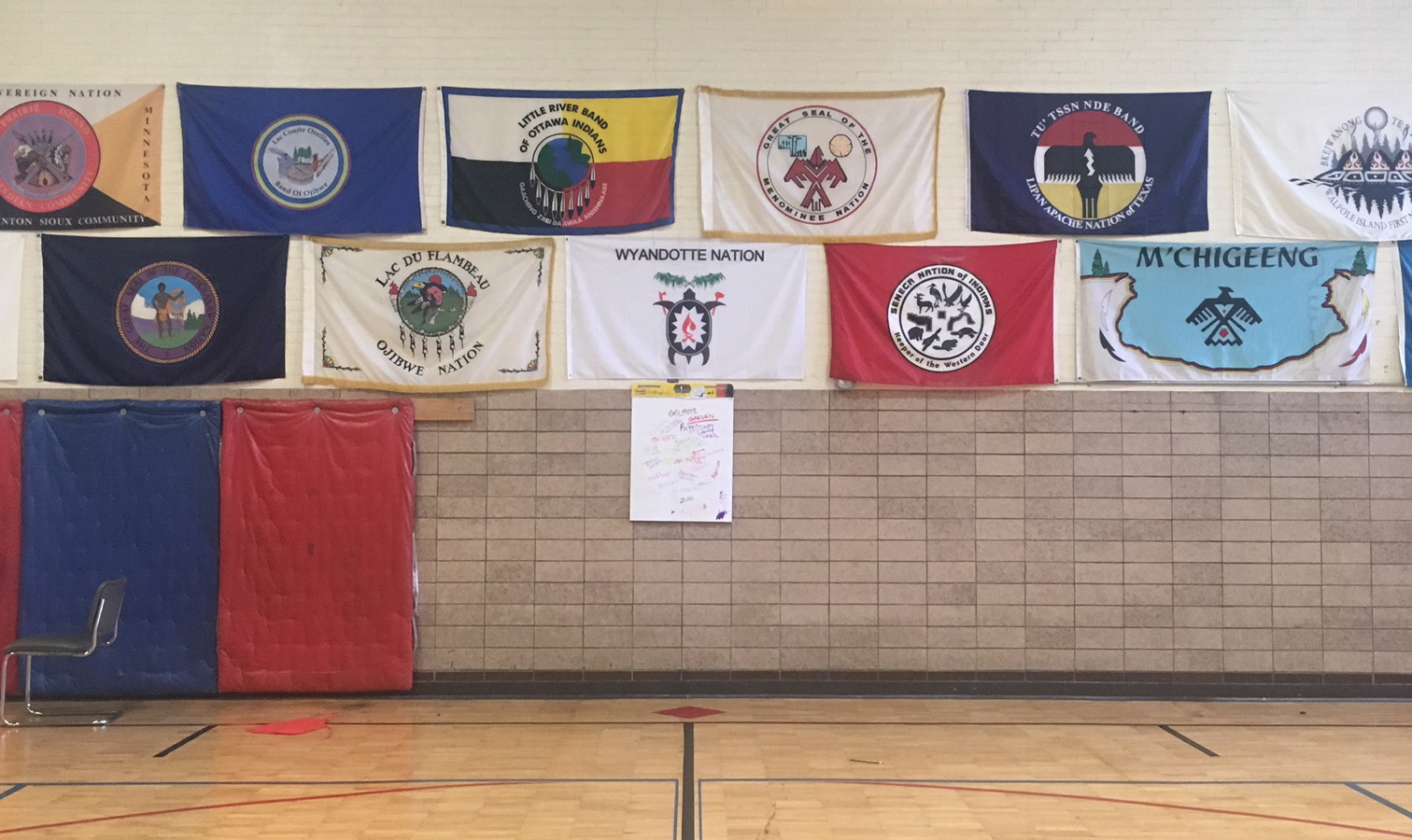2. Decolonizing Pasts and Futures

DECOLONIZING ARCHITECTURAL PASTS AND FUTURES
Organized by Andrew Herscher and Ana María León for SCCP and Ayala Levin and Meredith TenHoor for the Aggregate Architectural History Collaborative
Funding provided by The Global Architectural History Collaborative, the School of Architecture at Pratt Institute, Northwestern University Center for Native American and Indigenous Research, and the Chicago Architecture Biennial.
2pm, 19 October 2019, American Indian Center, 3401 West Ainslie St. Chicago IL
Architecture in the United States—and many other parts of the world—is built on stolen land. Architectural historians have begun to acknowledge the ongoing epistemic and physical violence of settler colonialism, to explore how the continued dispossession of Indigenous people might challenge the narratives of our discipline, and to engage questions of colonization and decolonization in their curricula. But too few have examined how the architectural theories and practices of Indigenous people across the globe might impact the writing of architectural stories, the limits, possibilities, and definitions of archives, and even the category of "architecture" itself.
Moving beyond the logics of extraction that have too often characterized settler engagements with Indigenous people and their lands, speakers at this event will discuss how architectural historians and theorists can responsibly engage Indigenous knowledge, history, and practices in pedagogy and research. The first set of speakers, from the fields of Indigenous studies, literature, and history, will share how they have addressed questions about indigenous knowledge from within their own disciplines. The second set of speakers, who are all architectural historians, will have a roundtable discussion about ethical engagements with Indigenous knowledge in architectural pedagogy and research.
PROGRAM
2pm Introductions
2:15-3.30 pm Indigenous Knowledge: Reports from the Humanities
John N. Low (Pokagon Band of Potawatomi Indians), Kyle T. Mays (Black/Saginaw Anishinaabe), Kelly Wisecup
Moderated by Andrew Herscher and Meredith TenHoor
3.30-3:45 pm Break
3:45 - 5.30 pm Indigenous Knowledge in Architectural History: A Roundtable Discussion
Chris Cornelius (Oneida Nation of Wisconsin), Kelema Lee Moses, Ivonne Santoyo-Orozco, Manuel Shvartzberg Carrió, Desirée Valadares, Mark Jarzombek.
Moderated by Ana María León and Ayala Levin
[at Aggregate]